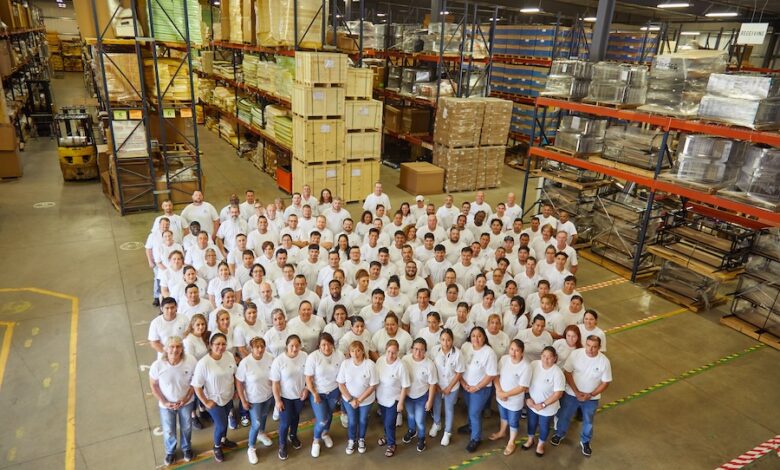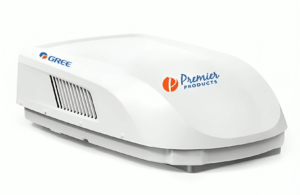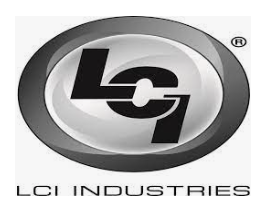Energy-Efficient AC Units Help RVers Go Off-Grid Longer
For dealers and OEMs, offering smarter HVAC systems that work with multiple power sources can boost customer satisfaction and off-grid capabilities.

For many RV enthusiasts, camping under the stars is considered the idyllic way to experience nature — secluded campsites, tranquil environs and off-the-grid experiences that leave the RV consumers longing for more. And with the pandemic behind us, more and more RV owners are setting their sights on long-haul trips, enjoying their motorhomes and traveling to far-off places to experience boondocking in all its glory.
Unfortunately, for many, the idea of being truly off-grid, without access to electricity, potable water and sewer facilities seems daunting. Luckily, many RV OEMs, suppliers and aftermarket companies are listening to the interests of today’s RV consumer and introducing products that help RV owners “get away from it all” while still maintaining the comfort and amenities that RV owners seek.
Premier Products’ Entry Into the RV Market
Take Premier Products, for example. Founded in September 2012, Premier Products boasts a core focus on manufacturing seating, HVAC systems and windows for the luxury bus and van markets. The company has recently developed a way for RV aficionados to have an off-grid experience in a comfortable and environmentally responsible way.
“We aways had the RV industry on our radar, being located in Elkhart, Indiana, the RV capital of the world,” says Brandon Alpert, executive sales director at Premier Products. “In 2017, an opportunity presented itself when Airstream approached us about manufacturing a seating product line for the Interstate Sprinter vans.”
This was Premier Products’ entrance into the RV space, and today the company makes products for every major OEM in the industry.
Creating a Quiet & Efficient RV AC for Off-Grid Use
 In 2018, Premier Products was approached by GREE, a large AC manufacturer, about partnering with them to develop and distribute a 110-volt AC system to the industry. The goal was to change the way RV consumers could experience off-grid camping in warm environments that required air conditioning for comfort.
In 2018, Premier Products was approached by GREE, a large AC manufacturer, about partnering with them to develop and distribute a 110-volt AC system to the industry. The goal was to change the way RV consumers could experience off-grid camping in warm environments that required air conditioning for comfort.
“We recognized the need for a better RV air conditioner to what existed, and our goal was to create a product that was quieter, more energy efficient, durable, and something that was more aesthetically appealing than what existed at that time,” Alpert says. Development and tooling of the product took nearly four years, and in the spring of 2022, Eco-Cool received its first prototypes, followed by the production model being released in early 2023.
Eco-Cool is a 15,000-Btu RV air conditioner with a built-in heat pump. The product is available as a ducted and nonducted application, which means it can be installed in nearly every motorhome. Its proprietary compressor technology utilizes less power at startup, less power while running and, due to overall performance, allows the compressor to cycle off for longer periods of time. All three of these benefits lead to around 30% overall power savings versus other 15K Btu systems on the market, the company says. Currently there are a wide range of OEMs using this system — ranging from Class B to Class A units.
“The final product was everything we had hoped for and even exceeded our expectations in regard to noise, performance output and efficiency,” Alpert says.
It also captured the attention of off-grid RV enthusiasts who were looking for a solution to using their AC units in remote locales. While running an RV air conditioning unit off-grid using solar power is certainly an option, this method requires a complete solar setup and careful planning. In addition, standard RV air conditioning units that are run on solar power need a substantial battery bank to meet the requirements for the AC unit being run at night. Of course, solar power is weather-dependent, so being off-grid in inclement weather can impede RV owners from effectively using their AC units.
Maximizing Comfort & Efficiency for Off-Grid RVing
When RV owners go off the grid, they rely on external power systems to keep their appliances running. They also need to carefully manage energy consumption and use only energy-efficient appliances. With a 110-volt AC system, the efficiency allows consumers to run their AC system for longer periods of time without having to worry about plugging into shore power.
“There are many factors that play a role in combining AC and solar power to camp off-grid comfortably — ranging from the type of RV all the way to where the consumer is traveling,” Alpert says. “RV owners are intelligent, and they do ample research. As it relates to our product, we tested the system vigorously and consumers see a 30% efficiency savings over the ‘run-of-the-mill’ RV air conditioner.”
Of course, camping off-grid requires RV owners to meld with their environs — enjoying the quiet stillness of a remote site. The loud, consistent humming of some air conditioning units can negatively impact the overall off-grid experience.
Premier Products specifically designed Eco-Cool to be one of the quietest air conditioning products available for the RV market, Alpert says.
“RV owners often talk about how loud their existing AC systems are — making it hard to sleep, watch TV or even hold a conversation in their motorhome,” he says. Using computational fluid dynamics (CFD) technology to optimize air flows results in a very quiet environment when the Eco-Cool unit is in use. Thanks to this advanced noise reduction technology, on the unit’s low setting the noise level is 43 dB, the medium setting is 52 dB and the high setting is 56 dB.
Another big challenge for RV travelers relying on battery or solar power is finding an air conditioning system that balances performance with energy efficiency. Finding an AC unit designed to provide optimal cooling while consuming less power is critical for boondocking and off-grid adventures in which consumers worry about draining their power supply.
“Eco-Cool is power efficient,” Alpert says. “This allows RV owners to run their AC systems for longer periods of time while not being connected to shore power. This is important for consumers who need their AC system to get them through the night without shutting off.”
In addition, while most RV air conditioners have built-in heat pumps rated for ambient temperatures between 32 F to 35 F, Eco-Cool is rated down to 23 F, allowing customers to use the heat pump in more extreme climate conditions.
“We’ve even had customers come back to us during the winter months and let us know the heat pump worked in the low-mid teens,” Alpert says. “At the end of the day, people want to be comfortable and not have to worry about where things may go wrong.”



